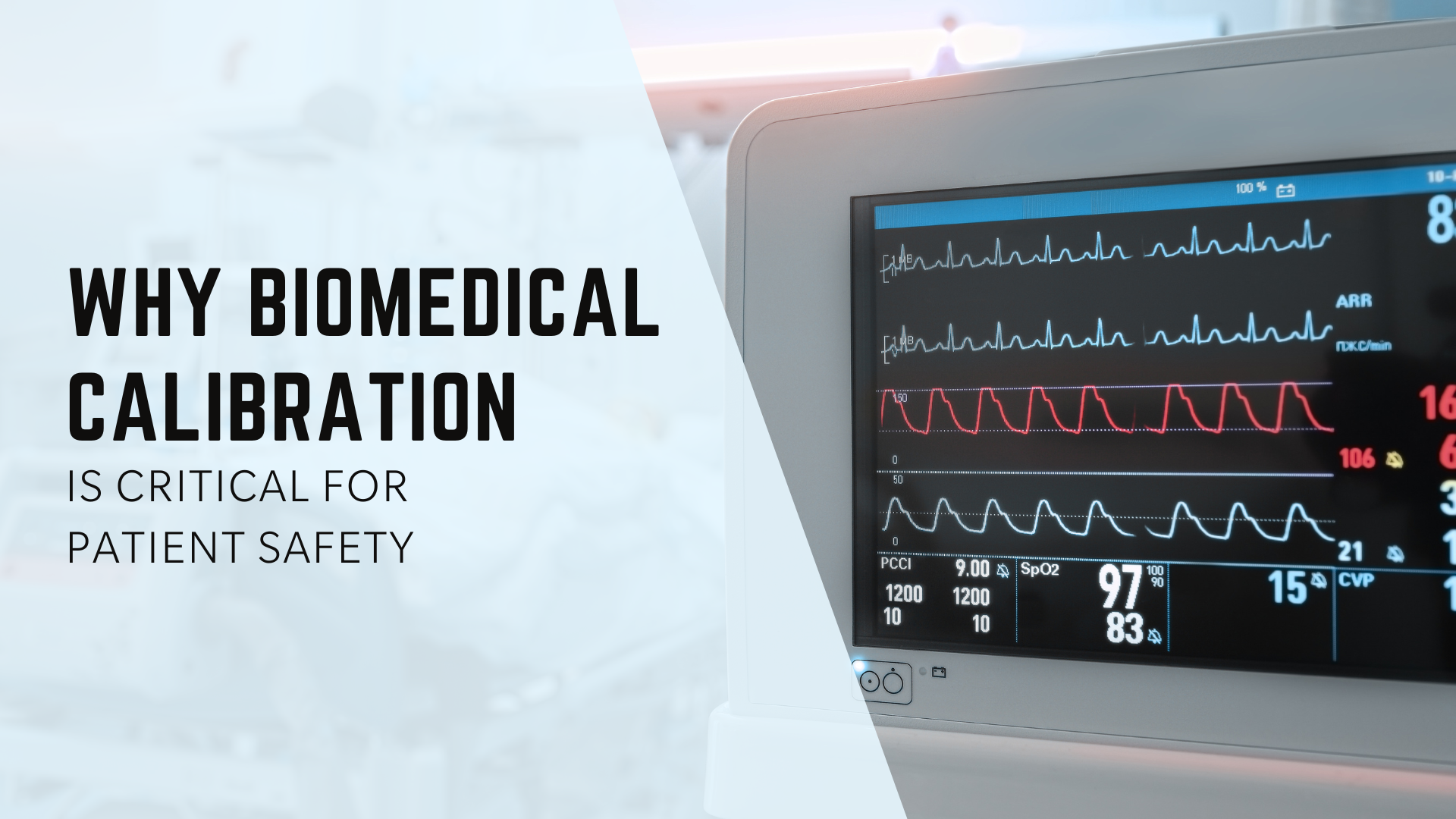
In healthcare, accuracy is paramount. From the diagnosis of diseases to the delivery of treatments, any minute miscalculation in medical readings can have disastrous outcomes. That's where Biomedical calibration comes in — a critical process that ensures medical equipment works accurately, consistently, and safely. For hospitals, clinics, and diagnostic facilities, investing in medical device calibration services is not only a matter of regulatory compliance; it's an assurance of patient safety.
With time, wear and tear, environmental variation, or sheer routine use, the performance of a device can stray. Without routine biomedical calibration processes, this deviation may not be detected until it's too late. Here's the way biomedical calibration directly contributes to patient safety:
Averts Diagnostic Errors
Uncalibrated equipment's incorrect readings will result in incorrect diagnosis or even delayed treatment. An improperly calibrated blood pressure machine, for example, might reveal normal readings in a patient with hypertension.
Maintains Life-Critical Equipment
Equipment such as defibrillators and ventilators need to work with complete accuracy. Biomedical calibration services guarantee that such devices react appropriately during high-pressure, life-and-death situations.
Promotes Compliance with Regulations
Healthcare professionals are obligated to meet tight regulations when dealing with equipment maintenance. Proper biomedical calibration procedures guarantee compliance with accreditation requirements and fines during audits.
Decreases Equipment Downtime
Preventive calibration not only provides increased safety but also prolongs the life of medical equipment. It ensures potential problems are diagnosed early, making unexpected failures less likely and preventing expensive repairs.
The Role of Professional Medical Device Calibration Services
Collaborating with professional medical device calibration services providers guarantees that all equipment in your facility is thoroughly inspected, adjusted, and documented. We adhere to standard biomedical calibration practices with certified equipment and reference standards, ensuring consistency and traceability.
Calibration frequency varies depending on:
As a best practice, many facilities perform annual calibration. However, high-use or critical-care devices may require more frequent attention.
In the high-stakes and fast-paced world of healthcare, there's no margin for error — particularly when it comes to medical devices. Biomedical calibration is vital to making certain that each reading, dosage, or operation is precise and reliable. By adopting regular biomedical calibration processes and collaborating with expert professional medical device calibration organizations, healthcare professionals can maintain the utmost standards of care, mitigate hazards, and promote a culture of trust and safety. Ultimately, properly calibrated devices aren't instruments — they're quiet champions of patient health.